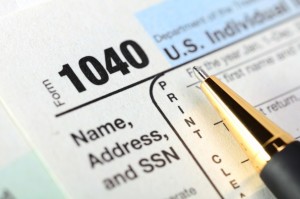 Today’s top story: How to save money by thinking like a college student. Also in the news: What an average retirement costs, how soon should you worry about your credit, and how to budget for your kids’ summer vacation.
Today’s top story: How to save money by thinking like a college student. Also in the news: What an average retirement costs, how soon should you worry about your credit, and how to budget for your kids’ summer vacation.
Save Money by Thinking Like a College Student
You can skip the ramen.
Let’s Get Real: What an Average Retirement Costs
Breaking down the numbers.
Ask Brianna: I’m 18. Should I Worry About My Credit Yet?
It’s never too soon.
How to Budget for Your Kids’ Summer Vacation
Summer can get very pricey.
 Today’s top story: 6 for-keeps New Year’s Resolutions for New Homeowners. Also in the news: Saving money by exercising outdoors this winter, learning the basics of the GOP Tax Plan, and the pros and cons of prepaying your 2018 property taxes in 2017.
Today’s top story: 6 for-keeps New Year’s Resolutions for New Homeowners. Also in the news: Saving money by exercising outdoors this winter, learning the basics of the GOP Tax Plan, and the pros and cons of prepaying your 2018 property taxes in 2017. Today’s top story: Why you need a 401(k) in your 20s. Also in the news: How being lazy can help you save money, the new rules of credit card point etiquette, and how to spot financial infidelity.
Today’s top story: Why you need a 401(k) in your 20s. Also in the news: How being lazy can help you save money, the new rules of credit card point etiquette, and how to spot financial infidelity. Today’s top story: Protecting your credit even as Equifax vows free lifelong credit lock. Also in the news: Sorting out an athlete’s tax bill, navigating car buying in a post-hurricane market, and the mobile game that helps you save money.
Today’s top story: Protecting your credit even as Equifax vows free lifelong credit lock. Also in the news: Sorting out an athlete’s tax bill, navigating car buying in a post-hurricane market, and the mobile game that helps you save money. Today’s top story: What to buy (and skip) in July. Also in the news: Conquering the fear of credit cards, 25 tips for first-time home buyers, and why Millennials can’t have nice things (or save any money.)
Today’s top story: What to buy (and skip) in July. Also in the news: Conquering the fear of credit cards, 25 tips for first-time home buyers, and why Millennials can’t have nice things (or save any money.)